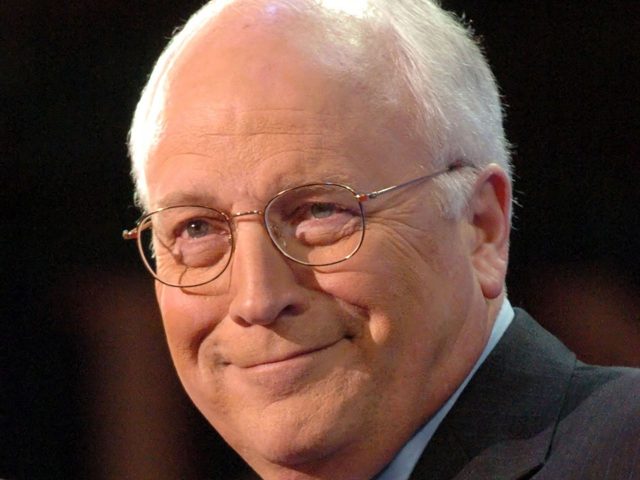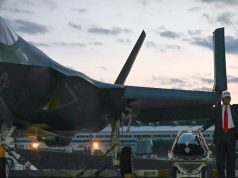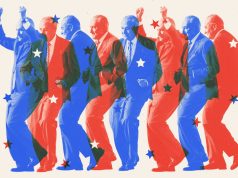
Dick Cheney turned the vice presidency from a punch line into a powerhouse. Having been a right-hand man to multiple Republican presidents before running with George W. Bush in 2000, he knew his worth. When a former veep, Dan Quayle, warned him the job mostly involved attending openings and funerals, Cheney replied, “I have a different understanding with the president.” A proponent of a strong executive branch, he rejected the idea that protecting civil liberties outweighed the imperative to prevent another 9/11. Instead, he became the architect of the War on Terror, crafting and promoting the administration’s rationale for invading Iraq in 2003. That conflict, in which nearly 5,000 U.S. service members and some 200,000 Iraqi civilians were killed, grew increasingly unpopular once it became clear that Iraqi dictator Saddam Hussein did not have weapons of mass destruction. Cheney, though, professed no regrets—and didn’t even object to being portrayed as a behind-the-scenes Machiavelli. “Am I the evil genius in the corner that nobody ever sees come out of his hole?” he mused in 2004. “It’s a nice way to operate, actually.”
Richard Bruce Cheney was born in Lincoln, Neb., and spent his adolescence in Casper, Wyo. His parents, both Democrats, “boasted that their son had been born on Franklin Roosevelt’s birthday,” said USA Today. In high school, Dick was captain of the football team—his future wife, Lynne Ann Vincent, was homecoming queen—and won a scholarship to Yale University. But he dropped out and “floundered for a time,” racking up two drunk-driving arrests before starting political science classes at the University of Wyoming in the mid-1960s. By the end of the decade, he was working for “an up-and-coming staffer in the Nixon White House named Donald Rumsfeld,” who would become his mentor. In the Ford administration, 34-year-old Cheney was named the youngest chief of staff in history when Rumsfeld left the post. He had his first heart attack (he’d have five) at 37 while running for the U.S. House, where he spent 10 years. When President George H.W. Bush nominated him for secretary of defense, he was unanimously confirmed despite questions over his multiple draft deferrals. “I had other priorities in the ’60s than military service,” he said.
Cheney “won plaudits for low-key but firm leadership,” said The Wall Street Journal, a style that helped him form an international coalition to oust Iraqi troops from Kuwait in the first Gulf War. When the next President Bush wanted a seasoned Washington insider on his ticket, he asked Cheney to compile a list of VP candidates; Cheney did, but then selected himself. Cheney’s “defining moment” arrived on Sept. 11, 2001, said The New York Times. The planes hit when Bush was away in Florida. Cheney quickly ordered that any other hijacked plane be shot down—which proved unnecessary—and persuaded Bush to authorize “enhanced interrogation,” or torture, of terrorist suspects, including waterboarding, sleep deprivation, and rectal force-feeding. A “powerful advocate” for the invasions of Afghanistan in October 2001 and Iraq in March 2003, he insisted there was “no doubt” Saddam was stockpiling WMDs and that U.S. troops would be “greeted as liberators.”
“Events would prove Cheney wrong,” said The Washington Post. The Iraq conflict birthed insurgencies and extremism, and photographs of detainees tortured at Abu Ghraib prison drew global condemnation. By Bush’s second term, Cheney found himself increasingly sidelined. His nadir came in 2006, when he accidentally blasted a hunting buddy in the face with birdshot. Yet though the U.S. “was poorer, weaker, more divided, and less globally popular” when he left office in 2009, said Foreign Policy, “it also had not suffered another 9/11-like attack.”
Out of office, Cheney was “one of the most strident GOP critics of President Barack Obama,” whom he saw as weak, said CNN.com. Though Cheney endorsed Donald Trump as GOP presidential nominee in 2016, he broke with Trump after the Jan. 6, 2021, U.S. Capitol riot. After his daughter, then–Rep. Liz Cheney, helped investigate Trump’s attempt to overturn the 2020 election, Trump pushed supporters to oust her and fantasized about her facing a firing squad. Cheney stood with his daughter and “in an ironic coda” voted for Democrat Kamala Harris in 2024. “There has never been an individual who is a greater threat to our republic than Donald Trump,” he said. “He can never be trusted with power again.”
Cheney died this month at the age of 84






